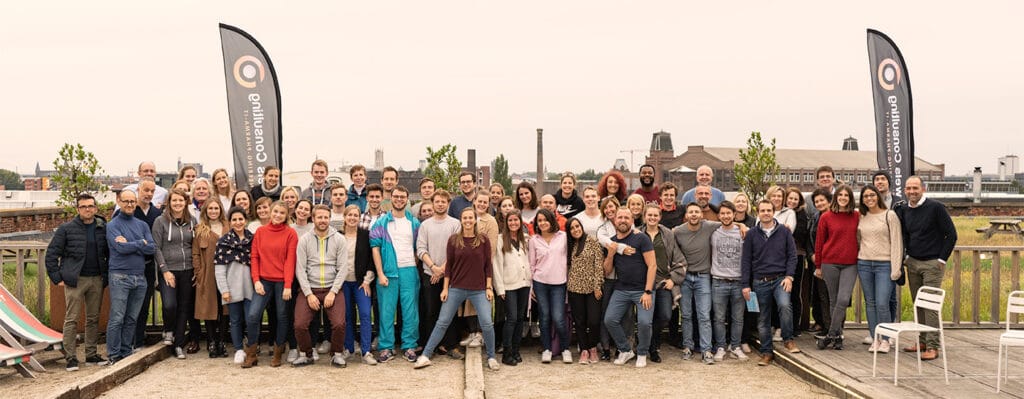Insights
6 tips for successful OpEx projects
In this article, we want to go one step further: we will give you 6 tips to increase your chances of success with your next OpEx project. The tips in this article are based on our own experience in Operational Excellence projects in various projects across many industries. We hope that these tips will help you with your next OpEx projects.
In our previous article we wrote about 9 pitfalls to avoid when planning and implementing Operational Excellence (OpEx) in your organization. In this article, we want to go one step further and share our tips for successfull OpEx projects.
1. Stimulate the generation of ideas for improvement on the shop floor
Most organizations implement Operational Excellence projects in a top-down manner: management decides to invest in OpEx and the rest of the company has to follow. This is a sensible approach, but please don’t forget to solicit and listen to feedback from the shop floor. It will greatly improve your chances of success.
After all, the shop floor is where the money is made and where improvement starts. Your operators and managers can provide you with first-hand feedback to optimize your processes, so listen to them and keep them motivated. In short,
- have motivated and critically thinking operators on the shop floor
- stimulate a culture of continuous improvement
- reward bottom-up feedback and personal contributions to change
- communicate your company’s vision and goals clearly to your entire workforce
2. Learn and motivate first-line management to identify ideas for improvement
Your operators can provide you with valuable feedback to further optimize your processes. But if they have no one to turn to, these ideas may go to waste. To ensure a good flow of ideas for improvement from the shop floor to management, invest in:
- managers with the right soft skills and (OpEx) training in first-line management
- clear and efficient bottom-up communication channels from the shop floor to management
- incentives for structural improvements identified by operators and first line managers
3. Implement quick wins as soon as possible in your OpEx project
Small changes often have the biggest impact on your OpEx project. One of the best ways to motivate people is to listen to them, implement their feedback (if useful) and let them know the results of their input. So try to:
- implement small changes (Kaizen) as soon as possible. This is essential to motivate your workforce and to nurture a culture of continuous improvement.
- make sure to communicate the results of the implementations as soon as possible (if possible in less than a week) to motivate your workforce to keep coming with new ideas for improvement.
4. Define and align clear company goals and long-term improvement projects
An Operational Excellence project requires having clear company goals for the long term. So please make sure to have these goals in place and make sure that everyone in the company knows the priorities and importance of these goals. So:
- define and communicate your company vision. This vision should state where your company is now and where you want it to be in 3 to 5 years. Describe your goals as SMART as possible.
- implement a transparent process for capturing and prioritizing larger improvement proposals to support your company goals. The priorities of these improvement proposals will be determined by the priorities of your company goals.
5. Take care of your OpEx project governance
All too often, the implementation phase is where improvement projects die a quiet death. In the face of shifting priorities, resource scarcity and disputes between departments, improvement projects can end up delayed, cancelled or even worse – rewritten to such a degree that they have nothing to do with the original idea anymore.
The successful implementation of improvement projects requires:
- An effective process for capturing project goals and deliverables and estimating their costs and dependencies
- An effective selection process for projects to avoid having too many ongoing projects at the same time
- Full support of higher management to sort out interfering priorities and departmental issues
- Full personal accountability from all the members of the project team to bring the project to a good end
6. Track the effectiveness of changes in the long term
Many improvement projects end up implemented, and some even do so within budget and before their due date. But the true effectiveness of an improvement project can only be measured on the shop floor, and only in the long term, long after the project was ‘delivered’.
Nevertheless, it is of critical importance to keep tracking the true effectiveness of a change. Not doing so, or not acting on an ineffective change, will hurt the credibility of the OPEX program and the continuous improvement culture. Thus, the people on the shop floor may lose their motivation to highlight and implement possibilities for improvement.
Successful tracking of the effectiveness of projects is very important and it requires at least:
- the establishment of clear KPIs that are in line with company goals and project goals
- bottom-up communication channels between and active involvement of the ‘people on the floor’ and the management at the top of the firm
OPERATIONAL EXCELLENCE IS A PEOPLE’S BUSINESS
We said it before and we will probably say it again, but operational excellence is a people’s business. One of the most important takeaways from the projects we have been involved in can be summarized as:
- making sure that everyone is informed and on the same page
- stimulating involvement of everyone in the company
- rewarding the involvement of everyone in the company
- celebrating results with everyone in the company
In other words: make sure you have a good model to manage “the (cultural) change”.
Contact us
Do you have any questions for us? Let’s get in touch!
"(Required)" indicates required fields





